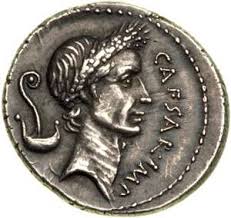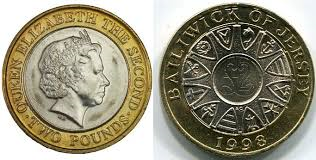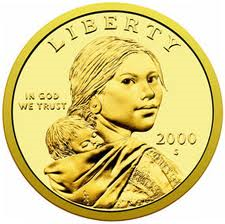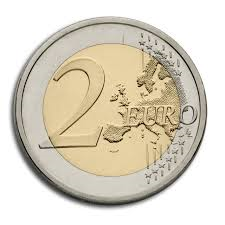 Render unto Caesar the things that are Caesar’s, and unto God the things that are God’s. – Matthew 22: 21
Render unto Caesar the things that are Caesar’s, and unto God the things that are God’s. – Matthew 22: 21
It may be Jesus’ most often quoted line, moral armor for defenders of the way things are, in Caesar’s world. Some insist this question, Jesus’ answer to a very tricky question posed by his opposition, was a signal he was uninterested in economic, or political, questions.
Yet, the great number of stories Jesus told about the uses of money assure us that he was very interested in economic questions. His emphasis on caring generosity leaves most of us stunned (think of the prodigal son, the Good Samaritan, the kingdom parables of the pearl and the treasure in the field, for both of which you must sell all you have in the world.) Jesus’ understanding of money transforms our understanding of what wise uses of money really are.
 So Jesus’ answer to the trick question about taxes is tricky to figure out. He and his questioners would agree that nothing outside God’s realm is holy or good. Good is the blessing God instilled in all creation. It comes from God, is bestowed by God, and belongs to God. If Caesar is somehow apart from God, Caesar is neither holy nor good. And if money is apart from God, it also is unholy, it is mammon, or filthy lucre, two names used elsewhere in the Scriptures for money.
So Jesus’ answer to the trick question about taxes is tricky to figure out. He and his questioners would agree that nothing outside God’s realm is holy or good. Good is the blessing God instilled in all creation. It comes from God, is bestowed by God, and belongs to God. If Caesar is somehow apart from God, Caesar is neither holy nor good. And if money is apart from God, it also is unholy, it is mammon, or filthy lucre, two names used elsewhere in the Scriptures for money.
But for Jesus, the question about money is the power money has over people– how our hearts and souls are bound to it, how it owns our desires and our imagination, how often money tempts us to cast away our integrity, how much we fear losing our money, how much our sense of our own worth comes from money.
 There is a lot of public sentiment now against paying taxes, a prevailing sense that politicians, who administer taxes, are evil. This was the case in Jesus’ time. Paying Caesar was detested. Yet Jesus does not hold the view that we should each take care of ourselves, nor does he hold with systems that allow some to suffer extreme deprivation, like poor Lazarus lying outside the rich man’s door, or like today’s poor immigrants, languishing on the borders of rich nations and being called a public pestilence. We argue about the borders of compassion, even more about the borders of participation in public benefits. Jesus allows no borders on these concerns.
There is a lot of public sentiment now against paying taxes, a prevailing sense that politicians, who administer taxes, are evil. This was the case in Jesus’ time. Paying Caesar was detested. Yet Jesus does not hold the view that we should each take care of ourselves, nor does he hold with systems that allow some to suffer extreme deprivation, like poor Lazarus lying outside the rich man’s door, or like today’s poor immigrants, languishing on the borders of rich nations and being called a public pestilence. We argue about the borders of compassion, even more about the borders of participation in public benefits. Jesus allows no borders on these concerns.
 To whom do the poor belong? The question is as tricky as the one about money. Do they belong to the nations where they live trapped in poverty? Does their poverty belong to their state, and no other state? Does their poverty belong to sin and the Devil, and is it a sign of their immorality, as many believe? But, what if the poor belong to God? What if they rest against God’s heart, as Lazarus, in death, lay in the bosom of Abraham, according to Jesus? If the poor belong to God, then when we separate ourselves from them and from their suffering, we separate ourselves from God and from our own blessing. This is as tricky as deciding between Caesar and God for our taxes, deciding who belongs with God and who belongs apart from God.
To whom do the poor belong? The question is as tricky as the one about money. Do they belong to the nations where they live trapped in poverty? Does their poverty belong to their state, and no other state? Does their poverty belong to sin and the Devil, and is it a sign of their immorality, as many believe? But, what if the poor belong to God? What if they rest against God’s heart, as Lazarus, in death, lay in the bosom of Abraham, according to Jesus? If the poor belong to God, then when we separate ourselves from them and from their suffering, we separate ourselves from God and from our own blessing. This is as tricky as deciding between Caesar and God for our taxes, deciding who belongs with God and who belongs apart from God.
To whom does the common welfare belong? If we paid no taxes at all, who would look after the poor? Who would fund the fight against ebola, provide textbooks for schools in impoverished places, plow the roads? To whom does the common welfare belong?
I want to believe I earned my money and it is mine. But the agony of those who do not have a fair share insists to me that the orderliness of money, and the clear division of whose money is whose, is a delusion. And often a cruel one.
A similarly tricky poser is, to whom does marriage belong? The state (Caesar), or God? And would that be e ach state, or the country as a whole? Who has the right to decide, to define, to bless, marriage? Will a concensus be reached? None of this is clear.
ach state, or the country as a whole? Who has the right to decide, to define, to bless, marriage? Will a concensus be reached? None of this is clear.
Over the past three decades, married life has greatly changed. Is marriage about the creation of children? Yes. But is it only about that? (Another borders question). There are so very many things that people who love each other can decide to do together with their lives, and raising children is only one.
What is the role of wife, now? Of husband? And what church has the right to argue for legal withdrawal of public blessing from any of us, in God’s name? Or the right to say to any of us, you are not among the good, you must live apart, outside the good family. For Calvinistic traditions, God is inscrutable, therefore law determines morality. But for Jesus, God is scrutable, and is made visible in love, which is part of our origin. And love, he teaches, goes beyond law.
So the question remains, to whom does marriage belong? To Caesar? Or to God? Like Jesus, marriage escapes the boundaries we try to enclose it in, and lives forever in Jesus’ unanswered question. The borders between Caesar and God pervade every aspect of our lives, and we put our souls at risk when we try to find a way to be human apart from God.
_____________________________________________
Illustrations:
1. Caesar’s coin. Google Images.
2. Pound Sterling. Google Images.
3. US Dollar coin, with image of Sakajewea. Google Images.
4. Euro. Google Images.
5. Map of US States where gay marriage is legal or allowed. Google Images.
6. Rainbow Map with wedding rings. Google Images.











